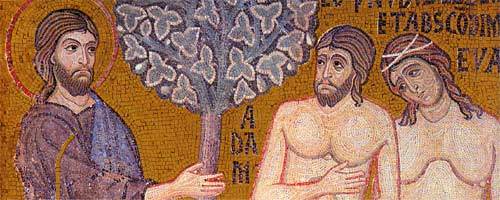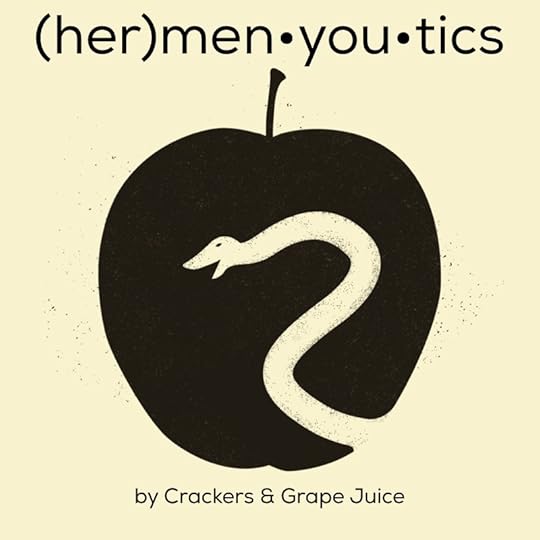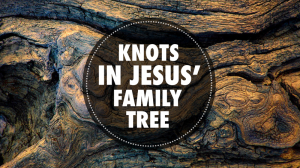Jason Micheli's Blog, page 128
January 8, 2018
Christ + __________ = Nothing
 For the season of Epiphany, we’re preaching our way through Paul’s Letter to the Galatians. Certainly it’s Romans in utero. Possibly it’s the most revolutionary book of the New Testament. The text for this Sunday was Galatians 1.3-9, 2.21:
For the season of Epiphany, we’re preaching our way through Paul’s Letter to the Galatians. Certainly it’s Romans in utero. Possibly it’s the most revolutionary book of the New Testament. The text for this Sunday was Galatians 1.3-9, 2.21:
“Grace to you and peace from God our Father and the Lord Jesus Christ,who gave himself for our sins to set us free from the present evil age, according to the will of our God and Father, to whom be the glory for ever and ever. Amen.
I am astonished that you are so quickly deserting the one who called you in the grace of Christ and are turning to a different gospel— not that there is another gospel, but there are some who are confusing you and want to pervert the gospel of Christ. But even if we or an angel from heaven should proclaim to you a gospel contrary to what we proclaimed to you, let that one be accursed!
As we have said before, so now I repeat, if anyone proclaims to you a gospel contrary to what you received, let that one be accursed! I do not nullify the grace of God; for if justification comes through the law, then Christ died for nothing.”
Shame on you-
All of you who’ve already kicked your Christmas trees to the curb like first wives and old lawn mowers, shame on you.
You all practically begin celebrating Christmas during Lent so the least you can do is keep the tree up until the season of Christmas is over.
Shame on you- Christmas is only now over.
Today, on the liturgical calendar, it’s the Feast of the Epiphany, the high holy day when the magi bring their gifts to the Christ child in his golden fleece diapers.
Epiphany always falls after the 12th Day of Christmas because it actually takes 12 days to sing all 5 verses of “We Three Kings.”
As a holiday, Epiphany is right up there with Ash Wednesday in terms of what it says about you and me. The name of the holiday says it all: Ash Wednesday.
Ash Wednesday says that the grime outside on your forehead matches the grime inside in you, and the wages of sin is death; ergo, from dust you came and to dust you shall return. Have a nice day.
Ash Wednesday- the takeaway for the day is built into the name.
Likewise, “Epiphany.”
Epiphany reminds us that you and I require one, an epiphany.
The name says it all.
Epiphany says that our situation before God is such that we cannot come to God or discover God- much less, follow God or have faith in God on our own, by our own lights, or through any innate ability that we possess.
We need an epiphany to discover the true God.
Epiphany says:
No-
You cannot find the true God on the golf course.
It doesn’t matter if you’re spiritual but not religious because neither spirituality nor religion can convey the Incarnate God to you.
Generic meditation cannot mediate the meaning of Christ and him crucified to you.
The takeaway for the day is in the name.
Just as the magi needed God to manipulate a Star in order to meet Christ, we need an epiphany; that is, we require a revelation from outside of us.
Epiphany is the opposite of what Luke Skywalker tells Rey in the Last Jedi just before Luke dies (oops). Luke tells Rey that the ability to find the Force lies within her.
Epiphany calls BS on Luke.
Epiphany insists that the Gospel is not like the Force.
The Gospel, the news that Jesus Christ gave himself for our sins to rescue us, is not innate inside of us. The Gospel, the Apostle Paul says, is the power of God breaking into our world from outside of us, beyond us, which brings me to my first point.
I know, I never preach 3-point sermons but, hey, new year, new you, right?
———————-
My first point is this:
We cannot take the Gospel for granted because the Gospel does not come naturally to any of us.
It must be revealed.
Given as an epiphany by God.
As the Small Catechism puts it, when we profess in the creed that we believe in the Holy Spirit, we’re professing that “by our own reason or strength we cannot believe in Jesus Christ our Lord.”
The Gospel does not come naturally to any of us because the Gospel comes as Jesus Christ and him crucified, which the bible says is foolishness to unbelievers and a stumbling block to believers.
And so we cannot afford to take the Gospel for granted and just get on with the hands-on “stuff” of Church: the serving and the Kingdom-building.
This is why St. Paul saves his harshest criticism for the churches in Galatia.
In Corinth, church members were having sex with their mother-in-laws, showing up drunk to the Lord’s Table, and fighting over scraps of meat sacrificed to idols.
Paul’s Letter to the Corinthians is a wilder read than Fire and Fury, yet St. Paul lays it on thick for the Corinthians. He calls them saints and dear ones and he thanks God for them.
By contrast- in today’s text, Paul skips the traditional salutations entirely, gets right to reminding them of the Gospel in verse 4, and by the time you get to verse 7 he’s calling them perverts and cursing them and calling down God’s judgement upon them.
Why is Paul so PO’d?
The Galatians were Christians- the Galatians were Christians, it doesn’t hurt to remember- who assumed that they had advanced beyond needing to hear the Gospel of Christ crucified for our sins every week.
Everyone knows that Jesus died for their sins, right? We don’t need to hear that Sunday after Sunday after Sunday after Sunday. Let’s hear about what we’re supposed to do.
They took that Gospel for granted, and they turned to another gospel, which is no gospel at all for it nullifies the Gospel.
This other gospel, said that it isn’t enough for Christians to trust that Christ’s faithfulness alone saves us.
God’s wiped our slate clean in Christ, this other gospel said, but God will one day judge us based on what we’ve done with that new slate.
This other gospel in Galatia, said that God had done his part, forgiving our sins in Christ, but now we have to do our part, faithfully following his commands to love our neighbor, care for the stranger, honor our family, and forgive those who trespass against us.
In other words, in taking the Gospel for granted, they’d reverted back to the Law.
As angry as Paul gets at the Galatians, he shouldn’t be surprised.
Whereas the Gospel does not come naturally to us, the Law, which the bible says is inscribed upon every human heart, does come naturally to us.
The Law is like the Force. The Law does not require an epiphany. The Law is innate to us.
We’re hardwired for commands. We want someone to give us instructions and advice and marching orders (that’s why Joel Osteen is so popular). It’s natural for us to want to do and perform and work and earn our way up to God.
And so if we take the Gospel of God’s coming down to us in Christ for granted, it’s only natural that we’ll pervert the Gospel away from the proclamation of what God has done for us, once for all, into the exhortation of what we must do for God.
We can’t take the Gospel for granted, then, because it’s natural for us to turn the Gospel into the Law.
———————-
Which brings me to my second point.
We can’t take the Gospel for granted because turning from what God has done to what we must do- it will prove our undoing.
Whoever wrote the first Christmas pageant hadn’t read their bible because the Old Testament does not consider the magi wise men. The magi were pagans and sorcerers. The magi are where we get the word magic. The magi were idolators.
Isaiah and Ezekiel both consider magi from Persia and Babylon as God’s enemies and they both prophesy God’s wrath upon them.
If you don’t know that about the magi then you can’t see what Matthew tries to show you with them.
The magi show us what St. Paul tells us about ourselves: that we who were once far off as enemies to God have been brought near to God not by our own doing but by God.
The magi follow their star charts and their reason westward to Israel, but their science and their reason only get them as far as Jerusalem where they seek out King Herod who promptly plots to kill them. In other words, relying only on their own wisdom and their own efforts leads them only to Death. Matthew wants you to see that relying on their own work and wisdom would’ve been their undoing.
The magi’s star charts do not lead them to Bethlehem.
The magi have to be told by a Word from the Lord, from the prophet Micah, to find Christ in Bethlehem.
Paul tells us what the magi show us.
This is why Paul is so amped up over the Galatians’ other gospel.
To think that the Gospel requires you to contribute anything to it means you don’t understand the Gospel and what it says about your condition.
God did his part; now we must do our part. No, the Gospel is that you’re not in a position to do anything. The Gospel is that “Jesus Christ gave himself for our sins to rescue us from the present evil age according to the will of our God and Father.” If we’re so sinful we require a substitute condemned in our stead, then we’re too sinful to contribute anything to our salvation or even cooperate with it.
Not only, according to the Gospel given by Christ to Paul, we’re captives too. We’re not just sinners. We’re prisoners to the evil age, what Paul calls elsewhere the Power of Sin.
God does his part; and we must do ours. No, that’s like telling a drowning man to kick harder. A drowning man doesn’t need to be taught how to swim. He needs a savior. A rescuer don’t insist that captives cooperate with their deliverance.
By definition, rescue is one-sided, one-way love.
That’s why Paul’s tone is so uncompromising.
There is no middle ground at all between:
“Christ has done everything for you” (the Gospel)
&
“This is what you must do” (the other gospel)
There’s no reconciliation between those two.
Paul’s letter to the Galatians in 5 words is this: Christ plus anything is nothing.
The easiest way to annul the Gospel is to add to it.
The easiest way to annul the Gospel is to add to the everything Christ has already done.
Just as the magi require God’s Word to save them from sure and certain Death, we require God’s Word made our sinful flesh to free us from certain condemnation.
That’s the point behind Paul’s PO’d passion. Because any other gospel, it’s worse than no gospel, it’s our condemnation. That’s why Paul invokes God’s curse in today’s text.
He’s referencing the Old Testament Book of Deuteronomy 27.26 where God warns those who are his people by circumcision that if they are to abide by his Law then they must obey the Law perfectly.
When it comes to the Law, it’s all or nothing. And if you don’t obey it all, then you will be accursed.
Paul’s amped up because the stakes are so high.
This other gospel, this God does his part and we must do our part gospel- it will be their undoing because the demand of the Law that they have added to the Gospel is that it be fulfilled perfectly.
They’ve taken the great exchange, Christ’s righteousness for our sin, and they’ve exchanged it for the very burden of the Law from which Christ came to set us free.
No wonder the midwinter’s so bleak in Christina Rosetti’s Christmas carol.
Because as soon as you start wondering what gift you must give to Jesus, you’re on the path to your own condemnation because, then, it’s not just one gift you must give to Jesus it’s every gift.
It’s not just a few of God’s commands. It’s all of them.
But the promise of the Gospel is that every possible gift of obedience has already been given to the Father by the Son for you in your place.
So ignore the bleak Christmas carol. You don’t need to give Jesus any gift.
Certainly not your heart- there’s nothing in your heart but cholesterol, darkness, and sin.
And even if I don’t know you, I know it to be true about you. I know it because the Bible tells me so. Why would you give him your heart?
No, if you want to give him a gift then give him your sin, give him your regret, give him your racism, give him whatever keeps you up at night because, really, it already belongs to him.
———————-
The magi were pagans. The magi worshipped not God but the heavens, which means the Star that God employs to beckon them and their gifts to Christ was their idol.
The Star was their false god. The Star was their golden calf.
Which means-
When the magi reach Bethlehem and- with the Star above them- bow down and kneel before Christ, they’re not just paying homage; they’re pledging a new allegiance.
In other words, they’ve changed.
They’ve been changed.
And it’s all been God’s doing. The change that has come to them has come upon them- they have received it passively.
And that brings me to my third point. Paul’s point running to the end of his angry letter.
We cannot take the Gospel for granted because the Gospel is like that Epiphany Star.
The Gospel, the news that Jesus Christ has rescued us from all our sins, is how God changes us.
The Gospel isn’t just an announcement of what God did.
The Gospel is what God does.
We cannot take the Gospel for granted and focus instead on giving to the church or serving the poor or reconciling injustice or resisting oppression or being a loving husband or a more patient parent.
We cannot take the Gospel for granted because the Gospel alone is how God changes you to be generous and compassionate and just and forgiving, more loving and patient.
That is, you cannot produce people who do the things that Jesus did by imploring people to do the things that Jesus did. Actually, according to St. Paul, because of the nature of sin, that will have the opposite effect.
Thus:
We’ll actually become less and less like Jesus the more we’re exhorted to become like Jesus.
People do not do the things that Jesus did by being exhorted to do the things that Jesus did.
People do the things that Jesus did only by hearing over and over what Jesus has done for them.
To put it in churchy terms:
Our sanctification
our growing in holiness
does not come by being told that we need become sanctified.
Our sanctification comes by hearing again and again and again, through word and water and wine and bread, that we are justified by Christ alone. Full stop.
We are able to live Christ-like only by hearing over and over and over that Christ’s death saves us. Period.
The reason Paul insists that Christ plus anything else is nothing at all is because this Gospel alone can accomplish what the Law cannot: transformed and holy people.
The way God changes you into faithfulness is this Gospel, this news that Jesus Christ has fulfilled all faithfulness for you such that you are freed from the obligation to be faithful.
The way God changes you to do the things that Jesus did is this news that Jesus did it all for you so you don’t have to do any of it.
That’s what Christians talk about when we talk about freedom.
In Christ, God has set you free from the burden of perfect obedience.
In Christ, God has set you free from the demand to have faith as big as a mountain- you’re mustard seed is just fine now.
This Gospel- it’s as odd as a Star that zig zags across the horizon and then just lingers.
At best, it sounds counter-intuitive.
At worst, it sounds incomprehensible.
Where’s the brimstone? Brimstone makes sense. Brimstone is natural.
Conditions and consequences are the way we’ve arranged the world. It’s the way we all parent.
There is nothing natural about a Gospel that says God makes people holy by promising them they’re free not to become holy.
No wonder the Galatians traded it out for a different gospel, one that conformed to the Law already on their hearts.
Who wouldn’t be afraid to give people that sort of freedom? If we don’t set limits- lay down Law- then won’t people just do whatever they want?
Abound in sin?
Paul is adamant that we not blink from this Gospel, but there is nothing natural about this Gospel.
To believe this Gospel- it requires a giant leap of faith.
———————-
Maybe this will help your unbelief:
Last month in Charlottesville at the African American Heritage Center, Ruby Sales, a lesser-known figure of the Civil Rights movement spoke to a capacity crowd.
Ruby Sales was a black teenage activist in the Deep South in the mid-1960’s. At the time, Sales wasn’t especially religious and she didn’t see the Civil Rights movement as a Christian one.
Then in March 1965 in Lowndes County, Alabama, Sales and some other activists were threatened outside a convenience store by a local shotgun-toting deputy.
When the deputy pulled the trigger, Jonathan Daniels, a VMI graduate and Episcopal seminary student, threw himself in front of Ruby Sales.
He died in her place, Ruby told the crowd last month in Charlottesville.
And then she said, listen to how she put it:
Jonathan walked away from the king’s table.
He could’ve had any position in society he wanted to, but forsaking all of it he came down among us in Selma where we were in bondage and he gave himself for me.
Ruby Sales is an Episcopal priest today.
Though many of her comments drew loud applause and approving nods during the event, one of her assertions drew a muted, even hostile, reaction.
When asked about the possibility of future white nationalist rallies in Charlottesville, Ruby Sales discouraged confrontation as the means to stop racism.
The KKK used to chase us, and now we’re chasing them, she said.
And this is what unsettled the crowd, what struck them as unnatural, Ruby Sales said:
Justice should not be confused with revenge. Any call for justice that does not offer a pathway [to racists] for redemption is revenge not justice.
When asked how she could have such hope and compassion as to hold out for the possibility of redemption for white nationalists- how she could even insist upon their redemption, Ruby Sales said this, listen, this isn’t some other gospel:
Whatever hope I have and whatever compassion I have for ugly white nationalists’ redemption comes from hearing about my own undeserved redemption Sunday after Sunday.
The Apostle Paul says that Christ + Anything Else = Nothing At All.
But as you come to the Table to receive Christ in your mouth, Ruby Sales says to you that the inverse of Paul’s formula is also true.
Christ alone is sufficient.
Sufficient as to be everything.
Follow @cmsvoteup

January 5, 2018
To Christ! Cheers!
 I couldn’t have more respect and fondness for my colleague Rev. Drew Colby. He asks great questions, pushes back where he should, and cares deeply about his vocation and preaching office.
I couldn’t have more respect and fondness for my colleague Rev. Drew Colby. He asks great questions, pushes back where he should, and cares deeply about his vocation and preaching office.
He’s also a good writer and savvy theologian. I wanted to share his Christmas sonnets here before 3 Kings Day hits.
Twelve sonnet-esque toasts to our Lord on the Feast of the Incarnation
Preface:
These poems are to be read like toasts, in good cheer. They’re all based on “types” of Christ in the manner of Christological typology–an ancient interpretive tool understanding Christ as the fulfillment of God’s activity throughout salvation history. Christ is the new Adam, the new Isaac, the new Moses, etc. Ideally, these could be read as a part of a feast. Perhaps a 12-course meal on January 5th, the 12th night of Christmas? Each course could start or end with one of these toasts. You’d be sure to have drunk the full breadth of Christmastide–good to the last drop. I’ve never tried that… Maybe next year.
1. To Christ the New Adam
To Christ the Lord a brand new Adam, he
The Breath of Life into our our dust re-breathed,
To him all laud and honor be assigned,
Humanity’s designer now designed.
Once Adam and his counterpart would walk
The garden every evening for a talk
Til temptation’s taste God’s grace betrayed.
These friends of God were naked and afraid.
This Adam is our ancestor and kin,
But now true human life again begins.
Old Adam’s peace with God, as friend,
Is why this re-cast Adam does descend.
Old Adam’s story, our disgraceful fall.
New Adam’s life, and death, redeems us all.
2. To Christ the New Noah
To mind, as friendly beasts around Christ stood,
There springs a tale of water, beasts, and wood,
Of Noah called to build for God an ark
As storm clouds gathered, ominous and dark.
The Holy family in a stable hid
As Noah and his family also did.
God tried to wash all fallenness away
From death’s deep wake, to dawn a better day.
God chose to never try the flood again,
And here is where our dear Christ enters in.
For him, the wood: The manger, then the cross.
Baptismal waters wash away our dross.
His Spirit is the dove on Calv’ry perched
The Christ-constructed arc is now the church.
3. To Christ the New Isaac
To Christ the Lord, a brand new Isaac, he
A shoot from Jesse’s Abrahamic tree.
Old Abe was promised kids at ninety-one,
Young Isaac was his Sarah’s firstborn son.
And he was their beloved pride and joy,
But God asked Abe to sacrifice his boy.
In faithfulness and fear Abe acquiesced
I still can’t see how this was heaven-blessed.
Then God stopped Abe and proved in Isaac’s life
That this is not God’s kind of sacrifice.
The faithful need not sacrifice another
We need not separate a child and mother.
Instead the sacrifice New Isaac gives
Is off’ring his own life so all may live.
4. To Christ the New Joseph
Imagine Christ the youngest of 12 brothers
His swaddling cloth a coat of many colors.
Eleven brothers did, as Judas will,
Sell Joseph out, a perfect plan, until,
Cast out he finds himself in Pharoah’s court.
The nascent Christ is Joseph, of a sort.
A dreamer, to be sure, but fully wise,
By his own tribal kin likewise despised.
The technicolor curtain to be torn,
To conquer o’er the grave is Christ now born.
Seek solace from this famine-fallowed land.
New Joseph sits enthroned at God’s right hand.
From siblings’ malintented cross of wood.
Came resurrection, God’s intended good.
5. To Christ the New Moses
To Christ the Lord, a brand new Moses, he
Has come to finally set all people free
To break the chains, the bars, the whip, the rod,
To bring for all earth’s Pharoahs signs that God
Has heard the cries of slaves to greed and might.
He recapitulates Passover night.
In Moses’ basket, Mary lays I AM
Who gives himself to be our Paschal Lamb.
And as in desert wilderness they saw
The gifts of water, manna, and the law
So Christ brings streams of mercy, bread of peace,
And to those held in bondage, sweet release.
As Moses brought commandments from above,
Christ’s new commandment, as his name, is Love.
6. To Christ the New David
To Christ the Lord, a new King David, he
Has come to rule the world with equity.
From Bethlehem, the Lord’s Davidic home,
Behold he comes to mount his manger throne.
Though Samuel warned a king was a mistake,
As all they do is take and take and take,
The people Israel insisted still
To be like other nations was their will.
Heart-broken over this unfaithful bride,
Their God in perfect patience did provide.
And though King David reigns the Hall of Fame,
This day three Kings bow down at Jesus’ name.
While most kings only take and take some more,
This Christ, new-born, is gracious evermore.
7. To Christ the New Ruth
To Christ, a recast Ruth, the nearlywed,
We raise a toast as they lay down their head.
Our Christ, like Ruth (Naomi’s foreign friend)
Committed to a promise, without end.
As Ruth was loyal in the midst of grief,
So Christ shows faithfulness, beyond belief.
They both attest, “Where e’er you go, I’ll be,
And, “We will one forever-fam’ly be.”
From boundless fruitful freedom, now enfleshed,
The firstborn of the harvest to be threshed.
To gather in the sheaves of broken dreams,
Our broken, banished-barley souls to glean,
In Christ, a Ruth, to us God self-entrusts
That none can put asunder God and us.
8. To Christ the New Jonah
To Naughty Nineveh God sent him out.
“You must repent or else,” he was to shout.
But Jonah ran from God and said “No way!”
Aboard a ship he slipped into the spray.
While playing possum, fleeing from the Lord,
His fellow sailors tossed him overboard.
Like Nineveh, our world is sick with sin
But Christ will walk where Jonah fell right in.
Once, Jonah prayed for 3 days in a fish
Then hurled ashore, he granted God’s own wish.
Where Jonah feared, our Christ was thrice as brave:
And for our sake was swallowed by the grave.
To Christ the Lord, a brand new Jonah, see?
Plunged into death he rose to victory.
9. To Christ the New Way (Based on writings of the prophet Isaiah)
To Christ the Lord, the Newly-Lighted Way
Isaiah’s glimpse foretold is here today.
In desert exile from the garden, we
Have prayed in shadow bent on feeble knee.
Arise and shine because the Light has come.
The lion and the lamb at last are one.
So walk in light and shout the great Amen.
Our Zion king instructs from Bethlehem.
The good and level road is ready now.
Convert your weapons, dare to share the plow.
Come ruler, president, and governor
And meet your lowly subjects’ comforter.
Trade evil for the Good, do not delay.
For this is Christ’s inauguration day.
10. To Mary Bearer of God
If Eve is mother to our wanton shame
Then Mary is a mother free from blame
So ponder with me now this “mother mild”
At once both meek and mighty, like her child.
A pregnant teenaged girl true wisdom had
Contemplative but fierce and shocked but glad
Tis she who births our Savior full of grace,
In labor’s pain rebirths the human race.
Her babe is firstborn of creation, true,
Which means, in theory, she’s our mother too.
The Theotokos is her name in Greek
The bearer of the one the wisest seek.
She bears God into life, and so, may we
Be bearers of the Light we long to see.
11. To Christ our Sin
Let us who know our sin now raise a glass,
To Christ the scapegoat flanked by ox and ass,
Our asses for to save, he takes on skin,
The guiltless bears our guilt, becomes our sin.
By faith, through tears, he downs a poisoned chalice,
His body filled with all our lust and malice.
Who Peter once denied, becomes denial.
The righteous judge endures the time of trial.
Who Judas once betrayed becomes betrayal
Consumes the murderous rage by Cain enabled.
The depths of all our evil, sin, and death,
Is crucified in flesh by holiness.
And can it be? Let all our tongues employ!
The wrath of God has sin in Christ destroyed.
12. To Christ the Word Made Flesh (John 1)
To Christ the Word made flesh now let us sing
As we behold the poe’try of this thing
This Word was with and was what Wonder wrought
This wondrous Word without which we were naught
Mere mortals mystified by elf on shelf,
This Light now lit is light that lights itself!
The True Light that enlightens everyone
As if there is no shadow, only sun
Unbowed, unbent, unbound by time and space,
From faithful fullness giv’n as grace on grace
He deigns to dine despite those that deny
This life that lives so all of death may die.
So in the name of Light and Word again,
I wish you Merry Christmas, friends. Amen.
Follow @cmsvoteup

January 3, 2018
The Gospel in Four Verses
 Scott Jones has gone from a name I knew on a box when I worked in the mailroom at Princeton to, in just a year, a good and trusted friend. While his preaching style- a conversational style I envy and cannot emulate- is different than mine, his homiletic is one I share.
Scott Jones has gone from a name I knew on a box when I worked in the mailroom at Princeton to, in just a year, a good and trusted friend. While his preaching style- a conversational style I envy and cannot emulate- is different than mine, his homiletic is one I share.
He preached this past Sunday at Feasterville Community Reformed Church where his podcast partner, Bill Borror, is the pastor. You can check out Bill’s Resident Exiles page here.
Check out his sermon. It’s worth the listen this season.
Follow @cmsvoteup

December 29, 2017
Christian Century’s 17 Most-Read Blog Posts of 2017
 Yours truly ranked #12 on the Christian Century Magazine’s 17 Most-Read Blog Posts of 2017.
Yours truly ranked #12 on the Christian Century Magazine’s 17 Most-Read Blog Posts of 2017.
You can check out the ones that beat me here. Here’s the post itself, a homily on the Transfiguration:
The Transfiguration is this Sunday, a scene that many preachers (color me guilty) get wrong, but Peter (no matter how many times we make him the patsy in the story) gets right.
Here’s a transfigured Transfiguration sermon.
Master, it is good for us to be here. Let us make three tabernacles, one for you, one for Moses and one for Elijah.
If you’ve ever sat through more than a handful of sermons, or endured even a couple of mine, then chances are you already know how the preaching from this point on the mountaintop is supposed to go.
I’m supposed to point the finger at Peter and chalk this episode up as yet another example of obtuse, dunder-tongued Peter getting Jesus bassakwards. I’m expected to chide Peter for wanting to preserve this spiritual, mountaintop experience.
From there, preaching on the Transfiguration is permitted to go in one of two ways.
I’m allowed to pivot from Peter’s foolish gesture to the (supposedly sophisticated) observation that discipleship isn’t about adoring glory or mountaintop experiences; no, it’s about going back down the mountain, into the grit and the grind of everyday life, where we can feed the hungry and cloth the naked and do everything else upper middle class Christians aren’t embarrassed to affirm.
Or, rather than pivot to the poor, I can keep the sermon focused on Peter. I can encourage you to identify with Peter, the disciple whose mouth is always quicker than his mind and whose ambition never measures up to his courage. I could preach Peter to you and comfort you that Peter’s just like you: a foolish, imperfect follower who fails at his faith as often as he gets it right. And, yet, Jesus loves him (and you) and builds his church on him.
That’s how you preach this text: go back down the mountaintop, back into ‘real life.’ Or, look at Peter—he’s just like you.
Given the way sermons on the Transfiguration always go, you’d think these are the only two options allowed.
Except, as cliched as those interpretations are, they’re not without their problems.
For one: I just spent the last year fighting stage-serious cancer, during which time I wasn’t able to go much of anywhere or do much of anything much less venture out into the world’s hurt, roll up my sleeves, and serve the poor. I wasn’t strong enough to do that kind of thing anymore.
So discipleship can’t merely be a matter of going back down the mountain because such a definition excludes a great many disciples, including me.
For another, if this is nothing more than another example of how obtuse Peter is, how Peter always manages to get it wrong, then when Peter professes, “Master, it is good for us to be here. Let us make three tabernacles, one for you, one for Moses and one for Elijah,” why doesn’t Jesus correct him? Why doesn’t Jesus rebuff Peter and say: ‘No, it is good for us to go back down the mountain to serve the least, the lost, and the lonely?’
Why doesn’t Jesus scold Peter? “Peter, it’s not about spiritual experiences, the Son of Man came to serve.”
If Peter’s offer is such a grave temptation, then why doesn’t Jesus exhort him like he does elsewhere and say: ‘Get behind me, Satan?’
If Peter is so wrong, then why doesn’t Jesus respond by rebuking Peter?
In fact, here on the mountaintop, it’s the only instance in any of the Gospels where Jesus doesn’t respond at all to something someone has said to him. This is the only instance where Jesus doesn’t respond.
I wonder: what if Jesus doesn’t respond because, more or less, Peter’s right?
Ludwig Feuerbach, an awesomely bearded 19th century critic of religion, accused Christians that all our theology is really only anthropology. Rather than talking about God, as we claim, we’re in fact only speaking about ourselves in a loud voice.
There’s perhaps no better proof of Feuerbach’s accusation than our propensity to make Peter the point of this scripture. To make this theophany, anthropology. To transfigure this story into something ordinary.
Just think, what would Peter make of the fact that so many preachers like me make Peter the subject of our preaching? Which is but a way making ourselves the focus of this story.
Don’t forget that this is the same Peter who insisted that he was not worthy to die in the same manner as Christ and so asked to be crucified upside down.
More than any of us, Peter would know that he should not be the subject of our sermons. Peter would know that he’s not the one we should be looking at in this scene.
I wonder: does Jesus not respond because what Peter gets right, even if he doesn’t know exactly what he’s saying, is that gazing upon Christ, who is charged with the uncreated light of God, is good?
Not only is it good, all the sermons to the contrary to the contrary, it is the essence of discipleship.
Indeed in this image of the transfigured Christ Peter sees the life of all lives flash before his eyes. In one instant of transfigured clarity, Peter sees the humanity of Jesus suffused with the eternal glory of God, and in that instant Peter glimpses the mystery of our faith: that God became human so that humanity might become like God.
This is where the good news is to be found.
Not in Peter being as dumb or scared as you and me.
Not in a message like ‘serve the poor’ that you would still agree to even if you knew not Christ.
No, the good news is found in the same glory that transfigured the face of Moses and dwelt in the Temple and rested upon the ark and overshadowed Mary pervading even Jesus’ humanity and also, one day, ours.
God became like us, that’s what Peter sees; so that, we might become like God, that’s what Peter eventually learns.
The light that radiates from Jesus’ flesh is the same light that said ‘Let there be…’ It’s the same light that the world awaits with groaning and labor pains and sighs too deep for words. It’s the light that will one day make all of creation a burning bush, afire with God’s glory but not consumed by it.
Peter’s right. It is right and good, always and everywhere, to worship and adore God became man, and, in seeing him, to see ourselves taken up into that same glory.
It is right and good, always and everywhere, to anticipate our flesh being remade into God’s image so that we may be united with God.
It is good, for just as Christ’s humanity is transfigured by glory without ceasing to be human so too will our humanity be called into union with God, to be deified, without our ceasing to be creatures.
That’s the plot of scripture. That’s the mystery of our faith.
Not only is Peter right, all the other sermons on this passage go in the wrong direction. It’s not about going back down the mountain. Rather the entire Christian life is a sort of ascent, venturing further and further up the mountain, to worship and adore the transfigured Christ and, in so doing, to be transfigured ourselves.
If we’re not transformed, what’s the point of going back down the mountain? We’d be down there, no different than anyone else, which leaves the world no different than its always been.
You can almost ask Jesus. Peter’s right.
What Peter gets wrong isn’t that it’s good to be there adoring the transfigured Christ. What Peter gets wrong is thinking he needs to build threetabernacles.
Elijah and Moses maybe could’ve used them, but not Jesus. Jesus’ flesh, his humanity, is the tabernacle.
Follow @cmsvoteup

December 28, 2017
A Sheep Without Verbs
 Among all the disciplines for which seminary prepared me well, preaching funerals was not one of them. Like distinguishing law from gospel, balancing the gathered’s desire for eulogy with my charge to preach Gospel is an elusive art. Of course, it may not matter at all as no preached word communicates as effectively as putting the dead into the dirt, but if it matters then I offer this as help to whomever might be helped by it.
Among all the disciplines for which seminary prepared me well, preaching funerals was not one of them. Like distinguishing law from gospel, balancing the gathered’s desire for eulogy with my charge to preach Gospel is an elusive art. Of course, it may not matter at all as no preached word communicates as effectively as putting the dead into the dirt, but if it matters then I offer this as help to whomever might be helped by it.
Maybe even the Shepherd will use the preached word to find.
Text:Psalm 23 – Funeral Homily for Warren Smith
My first funeral sermon 16 years ago flopped.
“It didn’t sound like you knew him at all” a worshipper told me on the way out of the funeral home chapel.
“Uh, I didn’t know him at all” I replied.
I didn’t know then- they don’t warn you in seminary- that most lay people consider it the mark of a good funeral sermon when the preacher sounds like he knows the deceased.
When it comes to funerals, lay people don’t usually judge whether I’ve proclaimed the Gospel or done a good job unpacking the scripture text or pointing to the promise of Cross and Resurrection.
For funerals, it’s a good sermon only if the gathered can shake my hand at the door and say “It sounded like you really knew her” or “You really captured him.”
Whenever one of the flock is lost, most people don’t care whether or not I speak of the Shepherd or proclaim that the Shepherd is Good.
Whenever one of the flock is lost, most people want to want to hear about the one lost sheep not the singular Shepherd.
They want to be assured that I know the person whom they’ve lost.
They don’t think they need to be reassured that the lost member of the flock is known by the Shepherd.
So, consider yourselves assured.
After 13 years here, I know Warren- not as well as you, but I know him.
I know, because he told me, that both of us grew up in Ohio and, by the grace of God, both of us got out of Ohio.
I also know- maybe for that reason- I was Warren’s favorite pastor, and I know Warren well enough to know that he knew I’m sufficiently vain that knowing I was his favorite was sufficient to make him one of my favorite parishioners.
I know Warren loved woodworking and genealogy and Huntley Meadows Park but not like he loved Becky and Brady and Matthew.
I know Warren would anticipate a joke and start to guffaw at the mere mention of Dennis Perry’s name in one of my sermons.
I know Warren loved carving and drawing and antique tools but nearly like he loved Megan and Kylie and Adam and Carina and Quinn.
I also know that after having sung in the church choir for so many years worth of Sundays, Warren had certainly heard this song from Israel’s hymnal as much as me.
And I don’t know but I suspect that, like me, Warren had heard these lines about “thy rod and thy staff” recited or prayed or sung so many times in worship he no longer heard the oddity of Psalm 23 or the offensiveness of it.
“The Lord is my Shepherd…”
To profess that the Lord is your Shepherd is to confess that you are a sheep.
A lamb even.
I don’t know if Warren was one of those grandparents who got addicted to playing Farmville on Facebook; nevertheless, Warren spent enough Sundays here at church to know that lambs are lame.
Sheep are stubborn, and I’m sure his wife Becky would attest that stubborn doesn’t describe Warren at all.
Sheep wander.
Sheep get lost.
Sheep fall into valleys.
Sheep are dependent totally on their shepherd.
Sheep need to be led and guided and protected by their shepherd.
Warren wasn’t like that at all. Warren was a director (at the VA). Warren wasn’t a lamb in need of direction. Warren loved Native American history. Warren would know. There aren’t any stories, epics, or legends called Dances with Lambs.
No, sheep are stupid.
By themselves, sheep are lunch for wolves.
To hear that God is your Shepherd is to be told that you are a sheep.
And to hear that you are no better than a sheep is offensive for us who rate our worth by our resumes.
Not only are sheep weak and stubborn and easily led astray, they’re completely useless.
Sheep aren’t like other animals.
Sheep aren’t like asses. Sheep don’t do any work by which they merit their worth. Sheep don’t bear a burden like mules do. Sheep don’t pull a plow like oxen do. Sheep don’t lead a wagon like horses do.
Even goats do work by which they earn their value. Even goats graze down briars and thickets to earn their worth.
The only real work- if you can call it work- a sheep performs is listening to the Shepherd’s voice.
If you measure animals’ worth by the work they perform, sheep are useless and, thus, worthless. Unlike other animals, the value of a lamb is intrinsic to the lamb. In its lamb-ness.
It’s worth isn’t in the work it does; it’s worth is in who it is as the creature made it to be. It’s worth is its wool and its meat.
So Psalm 23 is an odd, offensive song to hear on a day given over to commending Warren to God. Aren’t we commending him to God based on the good, worthwhile work Warren performed in the time given to him? Aren’t we commending him for the many ways he was not like a sheep but a goat?
Or an ox?
Besides being a father and a husband and a grandfather and a neighbor, Warren served in the Air Force and worked for nearly 40 years at the VA and then volunteered his work at Huntley Meadows Park. Isn’t that what we commend today?
Warren wasn’t a sheep at all, was he? Warren worked with his hands in his shop. Warren worked with his voice in the choir.
Warren wasn’t like a lamb at all; Warren earned his worth through his work- his love toiled on behalf of his neighbor and his God. Isn’t that what we commend about him today?
In the Gospel of Matthew, Jesus spins a yarn about a single lost sheep who wanders off from the flock of 99. We forget how the parable of the lost sheep is Jesus’ way of responding to the disciples’ attempts at elbowing each other out of the way in importance. The parable is his answer to their question “Who is the greatest in the house of the Lord?”
Notice-
Jesus doesn’t answer their question about their worth in the Kingdom with an exhortation about the work they must do. Jesus doesn’t tell them the greatest in the Kingdom are those who sell all their possessions and give the money to the poor. Jesus doesn’t tell them the greatest in the Kingdom are those who do the things that Jesus did, those who love their enemies and turn the other cheek and clothe the naked.
No, Jesus answers with an image of a sheep who actively accomplishes absolutely nothing. The sheep in Jesus’ story is nothing but the passive recipient of the Shepherd’s finding.
The parable is an odd way to answer a question about greatness because you don’t need to be a ranch hand to know that a lost sheep is a dead sheep just as surely as a lost coin is a dead asset.
How impressive can the House of the Lord be, after all, if the only ticket you need for greatness in it- much less for admission- is your lostness?
Not only is the parable an odd way to answer a question about worth, the parable is just as offensive as the psalm because the “Parable of the Lost Sheep” (that’s what the header in my Bible calls it) isn’t really about the sheep who gets lost at all.
The only verb the sheep gets in the parable is getting lost.
All the other verbs belong to the Shepherd.
The sheep doesn’t search out the flock.
The sheep doesn’t scramble out of a thicket and wander back to the fold.
The sheep doesn’t even bah-bah-bah until its voice is heard by the Shepherd.
And once it’s found, the sheep doesn’t even so much as repent of its getting lost.
We think the story’s supposed to be about the sheep, lost from its flock, but it’s about the Shepherd. It’s not about the work the sheep does to get itself to a findable place. It’s about the Shepherd’s work of finding.
It’s about the Good Shepherd’s gracious and saving determination to rescue his sheep from death.
The only verb the sheep gets in the parable is getting lost, which is to say, the only “work” the sheep does in the parable is to know that, apart from the gracious folly of the Shepherd to find him, death has the last word.
The Shepherd though gets all the good verbs in the story, including the last ones where the Shepherd puts the lost sheep on his shoulders and carries it back to his house and calls together his friends and his family and his neighbors and, like a fatted-calf-killing Prodigal Father, says: “Rejoice with me, for I have found my lost sheep.”
As if- it’s our sins and not our goodness, our wretchedness and not our worthwhile work, that most commend us to the grace of God.
———————-
Sheep are strange.
They can’t carry a Christ into town to shouts of Hosanna. They can’t bear a Samaritan’s friend to safety.
The only “work” sheep do is to trust the Shepherd’s voice.
And as God’s frightened flock- that’s our only work to do today too.
Here in the valley of the shadow of Death, I invite you to trust the voice of the Good Shepherd, Jesus Christ, who promises that by his substitution for us God forgets our sins in the darkness of our graves.
Trust the Shepherd’s voice when he tells you that his cousin John was right: he is the Lamb who bears all our sins away such that in the House of the Lord God remembers our iniquities no more.
Trust the Shepherd when he promises to you by his cross and his empty grave that in the power of the resurrection he finds us lost to death and he puts us on his shoulders and he carries us back to his friends with rejoicing.
Trust the Shepherd when he spins these yarns where there’s not a single note of our earning or our merit, not a hint of rewarding the rewardable or saving the salvageable.
Trust the Shepherd- for if its not about our worthiness, there’s absolutely no need to worry about our place in the house of the Lord.
All that is lost will be found because of his gracious folly to raise the dead to new life.
Follow @cmsvoteup

December 24, 2017
The Baby’s Born into a Family Just as Screwed Up as Yours
 There’s more than 1 way to tell the Christmas story.
There’s more than 1 way to tell the Christmas story.
For example, about 10 years ago, the Sunday before Christmas, we staged a Christmas pageant at a little church I once served.
During dress rehearsal that morning, stomach flu had started to sweep through the heavenly host. When it came time for the angelic chorus to deliver their lines in unison: “Glory to God in the highest” you could hear Katie, a first- grade angel, vomiting her breakfast into the trash can over by the grand piano.
The sound of Katie’s wretching was loud enough so that when the other angels should’ve been proclaiming “and on earth peace to all the people” they were instead gagging and covering their noses.
(This sermon’s off to a promising start, isn’t it?)
Meanwhile, apparently bored by the angels’ news of a Messiah, two of the shepherds- both third-grade boys and both sons of wise men- started brawling on the altar floor next to the manger.
Their free-for-all prompted one of the wise men to leave his entourage and stride angrily up the sanctuary aisle, smack his shepherd son behind the ear and threaten: “Boy, Santa won’t be bringing Nascar tickets this year if you can’t hold it together.”
It was a little church.
(#blesstheirheart)
Truth be told, it had neither the numbers nor the talent to mount a production of the Christmas story; nonetheless, a brusque, take-charge mother, who was a new member in the congregation, had approached me about staging a pageant.
And because I was a rookie pastor and didn’t know any better- and honestly, because I was terrified of this woman- I said yes.
The set constructed in the church sanctuary was made to look like the small town where we lived. So the Bethlehem skyline was dotted with Burger King, the local VFW, the municipal building, the funeral home and, instead of an inn, the Super 8 Motel. At every stop in Bethlehem someone sat behind a cardboard door. Joseph would knock and the person behind the door would declare: ‘Sorry, ain’t no room here.”
The old man behind the door of the cardboard VFW was named Fred. He was the oldest member of the congregation. He sat on a stool behind the set, wearing his VFW beret and chewing on an unlit cigarillo.
Fred was almost completely deaf and not a little senile so when Mary and Joseph came to him, they didn’t bother knocking on the door.
They just opened it up and asked the surprised-looking old man if he had any room for them to which he would respond by looking around at his surroundings as though he were wondering how he’d gotten there.
For some reason, the magi were responsible for their own costumes.
Thus, one wise man wore a white lab coat and carried a telescope. Another wise man was dressed like the WWF wrestler the Iron Sheik, and the third wise man wore a maroon Virginia Tech bathrobe and for some inexplicable reason had aluminum foil wrapped around his head.
King Herod was played by the head usher, Jimmy.
At 6’6 and wearing a crown and a white-collared purple robe and carrying a gold cane, Herod looked more like Kramer as an uptown gigilo than he did a biblical character.
When it came time for the performance, I took a seat on the bench in the back of the sanctuary where the ushers normally sat and, gazing at the cast and the production design from afar, I briefly wondered to myself why I hadn’t gone to law school.
I sat down and King Herod handed me a program.
On the cover was the title: ‘The Story of the First Christmas.’ On the inside was a list of cast members’ names and their roles.
As the pageant began with a song lip-synced by the angels, the other usher for the day sat next to me. His name was Mike. He was an imposing, retired cop with salt-and-pepper hair and dark eyes.
Truth be told, he never liked me all that much.
Mike sat down, fixed his reading glasses at the end of his nose, opened his program and began mumbling names under his breath: Mary played by…Elizabeth played by…Magi #1 played by…
His voice was barely above a whisper but it was thick with contempt. I knew right then what he was getting at or, rather, I knew what had gotten under his skin.
There were no teenage girls in the congregation to be cast. So Mary was played by a grown woman- a grown woman who was married to a man more than twice her age.
She’d married him only after splitting up his previous marriage.
Elizabeth, the mother of John the Baptist, was played a woman who was new to the church, a woman who often wore sunglasses to worship or heavy make-
up or who sometimes didn’t bother at all and just wore the bruises given to her by a boyfriend none of us had ever met.
Of the three magi, one of them had scandalized the church by ruining his father’s business.
Another was separated from his wife, but not legally so, and was living with another woman.
The man playing the role of Zechariah owned a construction company and had been accused of fraud by another member of the congregation.
The innkeeper at the Super 8 Motel…he was a lifelong alcoholic, alienated from his grown children and several ex-wives.
Reluctantly shepherding the elementary-aged shepherds was a high school junior. He’d gotten busted earlier that fall for drug possession. His mother was dressed as an angel that day, helping to direct the heavenly host. Her husband, her boy’s father, had walked out on them a year earlier.
Mike read the cast members’ names under his breath. Then he rolled up his program and he poked me with it and, just when the angel Gabriel was delivering his news to Mary, Mike whispered into my ear:
Who picked the cast for this? Who chose them?
Then he shook his head in disgust and accused me:
Do you really think this is appropriate?
There’s more than 1 way to tell the Christmas story- I mean, the Christmas stories aren’t all the same.
For example, St. Mark is the oldest of the Gospels but all Mark says about Christmas is that the coming of Jesus is the beginning of one Kingdom and the end of another.
St John, on the other hand, begins his Christmas story with cryptic philosophy: ‘In the beginning was the Word and the Word was with God and the Word was God.’
St Luke weaves the most popular nativity story. His is the story you probably know, telling us about the days of Caesar Augustus, about a tax and a census.
Luke’s the one who tells us about angels heard on high and shepherds watching their flocks by night.
But Matthew, by contrast, begins his Christmas story, not with angels or emperors, with an ad from www.ancestory.com:
“An account of the genesis of Jesus the Messiah…Abraham was the father of Isaac, and Isaac the father of Jacob, and Jacob the father of Judah and his brothers, and Judah the father of Perez and Zerah by Tamar…”
Matthew gives us sixteen verses of ‘so and so was the father of so and so’ before we ever even hear the angel Gabriel spill the news about the Messiah’s birth. I wanted to read it all tonight but my wife said that would be sermon suicide. Matthew tells the Christmas story not with emperors or angels or shepherds. Matthew doesn’t bother mentioning how the baby’s wrapped in scraps of cloth and laid in feed trough.
Instead what Matthew gives us is a family tree, 42 generations’ worth of boring, snore-fest begats. Begats that go back all the way to the first promise God ever made to bless the world.
It’s as if Matthew wants to say:
Everything about Christmas
Every promise this Christ child offers you
Every word of good news that comes spoken to us in Emmanuel- all of it can be found in his family tree just as easily as you can find it in his stable.
The funny thing about Jesus’ family tree- there are no branches with the cast of characters you’d choose for a Christmas story. Jesus’ family tree is filled with the sorts of people you’d expect to see on TMZ not in a nativity.
If God were to take human flesh you’d expect him to take the flesh of a much different family.
For instance-
There’s Abraham, who tried to cut his son Isaac’s throat. Issac survived to be the father of Jacob, an unscrupulous but entertaining character who won his position in Jesus’ family line by lying and cheating his blind, old father.
Jacob got cheated himself when he ‘got to know’ the wrong girl by mistake and became the father of Judah. Judah made the same mistake with his own daughter-in-law, Tamar.
Tamar had cheated him by disguising herself as a prostitute.
(I mean: Hebress with a heart of gold)
I’m telling you: these aren’t the sort of people you’d invite for Christmas.
There’s a man named Boaz in Jesus’ family tree. Boaz was seduced by a foreigner named Ruth. He woke up in the middle of night and found Ruth climbing in to bed with him. Not that Boaz ought to have been shocked. His mother, Matthew tells us, was Rahab, a ‘working girl’ who betrayed her people.
Boaz’s son was the grandfather of David.
David was a power-hungry peeping-tom, who spied on Bathsheba bathing on a rooftop one evening. David arranged for her husband, Uriah, to be murdered. David and Bathsheba went to become the parents of Solomon, the next name in the family tree of Emmanuel, God-with-us.
Of course, the family tree ultimately winds its way to Joseph.
Joseph, who, Matthew makes no bones to hide, wasn’t the father of Jesus at all. He was just the fiance of the boy’s mother- Mary, the teenage girl with a child on the way and no ring on her finger.
There’s more than 1 way to tell the Christmas story.
Matthew doesn’t tell us about shepherds filled with good news. Matthew doesn’t bother with imperial politics or mangers filled with straw or inns with no vacancy. Instead Matthew tells us the Christmas story by first telling us about the messy and the embarrassing and the sordid and the complicated and the disappointing and the unfaithful parts of Jesus’ family.
And then, having said all that, Matthew tells us this baby is Emmanuel, God- with-us, God-for-us, as one of us, in the flesh.
Do you really think this is appropriate? Mike asked me and then gestured with the rolled up program of names.
As if to say…when it comes to Christmas shouldn’t we at least try to find some people who are a bit more pious, people whose families are a bit less complicated, people whose lives are less messy?
The narrator for the Christmas pageant that year was a woman whose name, ironically, was Mary.
She was old and incredibly tiny, no bigger than the children that morning wearing gold pipe cleaner halos around their heads. Emphysema was killing Mary a breath at a time. She had to be helped up to the pulpit once the performance began. I’d spent a lot of hours in Mary’s kitchen over the time I was her pastor, sipping bad Folger’s coffee and listening to her tell me about her family.
About the dozen miscarriages she’d had in her life and about how the pain of all those losses was outweighed only by the joy of the child she’d grafted into her family tree. About the husband who died suddenly, before the dreams they’d had together could be checked-off the list. About her daughter’s broken marriage. And about her two grandsons who, in the complicated way of families, were now living with her.
Mary was the narrator for the Christmas story that year.
As the children finished their lip-synced opening song, and as the shepherds and angels and wise men took their places, and as Billy climbed into his make- shift throne, looking more like a Harvey Keitel pimp than a King Herod- Mary struggled up to the pulpit.
Her oxygen tank sat next to her in a wheeled cart. Her fierce eyes were just barely visible above the microphone but from my seat there in the back I was sure she was staring right at her family.
With her blood-thinner-bruised hands she spread out her script and in a soft, raspy voice she began to tell the story, beginning not with Luke or with John but with Matthew, the Gospel of Matthew.
I wouldn’t have chosen Matthew for a Christmas pageant, but there’s more than 1 way to tell the Christmas story.
The cadence of Mary’s delivery was dictated by the mask she had to put over her face every few seconds to fill her lungs with air:
“All this took place…(breath)…to fulfill what had been spoken by the prophet…(breath)…they shall name him Emmanuel…(breath)…which means…(breath)…God with us.”
Do you really think this is appropriate? Mike asked me through gritted teeth.
And sitting in the back, I looked at Mary behind the pulpit and I looked at all the other fragile, compromised people from our church family who were dressed in their costumes and waiting to deliver their part of the Gospel.
‘Appropriate?’ I whispered back.
‘No. No, I think it’s perfect.‘
And Mike glared at me, red-faced.
‘There’s more than 1 way to tell the Christmas story’ I said with a smile.
I never stepped foot inside a church until a Christmas Eve service when I was teenager.
Growing up my father was a severe alcoholic. He was in and out of our lives. My parent’s marriage was down and up and down and then it was over.
And, honestly, every year I just about wreck my own family’s Christmas because I can’t get over- can’t forgive- that baggage.
What I mean to say is-
I know how its easy to suspect that this holiday isn’t really for you.
I know how easy it is to worry you don’t belong, to think that at Christmas you have to dress up and come to a church service and pretend for an hour that you’re someone else, pretend your family is different than it really is behind closed doors.
I know how easy it is to believe that at Christmas- especially in this place- you have to hide the fact that you’re not good enough, that you don’t have enough faith, that you have too many secrets, that you have too much doubt, that if God knew who you really were, what you had done and what you have left undone, then he wouldn’t be born for you.
I know how easy it is to think that the Christmas story is not your story.
But then, there’s more than 1 way to tell the Christmas story.
This family tree Matthew gives us- you might think it an odd way to tell the Christmas story.
I mean there’s no two ways about it- Jesus’ family is messed up.
But then again, so is mine and, probably, so is yours.
And God- I want you to know it so badly: that’s the gift given tonight in Emmanuel.
And it’s a gift Matthew doesn’t think needs to be wrapped in angels’ songs
or mangers filled with straw. The gift given tonight is that God comes to you and to me just as we are. Not as we wish we could be. Not as we used to be. Not as others think we should be. Not as our parents or our spouses or our children or our neighbors or our bosses think we should be.
No.
There’s more than 1 way to tell the Christmas story and what Matthew has to tell you is that:
Tonight Emmanuel
God-with-us
Comes to us
Just as you are.
We call it grace.
Take if from me, that’s the only gift that can change you.
Follow @cmsvoteup

December 22, 2017
Linus was Wrong, Tim Keller is Correct: Why Jesus Came
 Elf on the Shelf and Krampus and crass consumerism are easy targets come Christmastime, but too often even overtly Christian fare misses being Gospel this season.
Elf on the Shelf and Krampus and crass consumerism are easy targets come Christmastime, but too often even overtly Christian fare misses being Gospel this season.
Take the ubiquitous Charlie Brown Christmas. It’s not an exaggeration to say the soundtrack is the best attribute of it. Recall how Charlie Brown confesses he doesn’t know what Christmas is all about. And then Linus tells Luke’s story of Christ’s birth in the little town of Bethlehem. Cue Christians around the world cheering in response as Linus approaches Charlie and says, “That is the what Christmas is all about Charlie Brown.”
Most of us- we do Linus every year in church. We say Jesus is the reason for the season and we retell the nativity story of his birth.
Rehearsing the Christmas isn’t Gospel. What happened isn’t the same as why it matters.
As Paul Koch says, Linus’ story isn’t what Christmas is all about because it lacks the “For You” of the Gospel.
No Linus,
Christmas is about human sin and condemnation. Christmas is about the weakness of the flesh. Christmas is about a God who out of his divine mercy and goodness sent his only begotten Son as a substitute for you. For your failures and doubts and fears. For your selfishness and pride, our Lord was born in the little town of Bethlehem.
Christmas isn’t about just telling the story. It is about proclaiming the Good News.
It is about telling Charlie Brown that though his friends are a bunch of jerks and he feels alone and filled with shame and guilt he is not outside the love of God.
It is to tell him that in Christ alone there is forgiveness, life, and salvation. In fact, because of that incarnation, because of the birth of Christ, Linus can now say to Charlie Brown, “You are loved. You are forgiven. You are a child of God.
And you, yes you, are the reason for the season!”
On my podcast, Crackers and Grape Juice, we recently discussed this viral tweet from Reformed pastor and author Tim Keller:
Keller gets right what Linus and the rest of us get wrong.
Here’s the podcast. If you’re getting this by email and can’t see the audio embed, then go to www.crackersandgrapejuice.com to find it and all the other episodes.
Don’t forget: Give us a rating and review!!!
Help us reach more people: Give us 4 Stars and a good review there in the iTunes store.
It’ll make it more likely more strangers and pilgrims will happen upon our meager podcast. ‘Like’ our Facebook Page too. You can find it here. Help support the show! This ain’t free or easy but it’s cheap to pitch in. Click here to become a patron of the podcasts.
Follow @cmsvoteup

December 21, 2017
Hearing the News from Mary’s Vantage
Save a fanciful excursus on the magi that disappeared forever when my son sucked on the thumb drive, this narrative on the annunciation remains my least popular most hated sermon ever.
I like it very much.
With haste, she packed her belongings into a duffel.
She folded her jeans and some blouses and wondered how long she’d fit into them. She zipped her bag shut and sadly glanced at the wedding dress hanging in her closet. Seeing it, she knew it would be too small on her wedding day, should that day ever come.
‘Favored one,’ that’s what he’d called her. Favored one. But now, hurrying before anyone else in the house awoke, it seemed more burden than blessing.
‘Favored one.’
She hadn’t known what to make of such a greeting when she first heard it.
‘Favored one.’
Hannah had received that same greeting. Hannah, who hadn’t let the gray in her hair or the crow’s feet around her eyes stop her from praying ceaselessly for God to fill her barren womb with a child. Eli, the haggard priest, had called Hannah ‘favored one’ just before he spilled the news of her answered prayer.
But packing the last of her things and clicking off the bedroom lights she recalled that even for Hannah a blessing from God wasn’t so simple. Even for Hannah the blessing was also a summons.
Hannah had prayed holes in the rug for a child but as soon as Hannah weaned her son, God called her to give her boy to Eli, the priest. Hannah’s boy was to be consecrated.
Tiptoeing through the dark hallway, she wondered how Hannah had explained that to her husband. She wondered what it had been like for Hannah, who lost out on all the memories a mother counts on: his first words, learning to walk, the first day of school, homecoming and his wedding day.
Everything Hannah had wanted when she’d wanted a child sacrificed for the purpose God had for her boy.
Hannah- she’d been called ‘favored one’ too.
Leaving her house in the cold moonlight, she thought that God’s favor was also a kind of humiliation, that God’s call was also a call to suffer.
‘Let it be with me according to your word,’ she’d told him when she could think of nothing else to say. But if she prayed now for God to let this cup pass from her, would he?
‘Let it be with me according to your word,’ she’d said.
Standing out under the streetlight and looking back at the house where she’d grown up, she realized it wasn’t that simple.
Things would never be simple again.
Elizabeth lived in the country outside Jerusalem, several days journey from Nazareth. She’d stop in villages along the way to draw water from their wells.
She knew what others must have thought: a young girl, a single woman, resting at a well all by herself raised eyebrows. It was in those moments with men and women staring at her, making assumptions and passing judgments, she wondered if the angel knew what sort of family her baby would be grafted onto.
Names like Rahab and Ruth leapt out, a prostitute and a foreigner. Not the sort of family you’d expect to be chosen.
She wondered what that said about God.
And what her boy would one day make of it.
At night she camped out in the fields along the road where the only noise came from the shepherds and their flocks.
She got sick for the first time out there in the fields.
It was then she began to wonder about the stranger she would bring into the world. Who will this be? she thought. Here is something that is most profoundly me, my flesh and my blood, the sheer stuff of me, depending on me and vulnerable to me. And yet not me, strange to me, impenetrable to me.
She’d asked him there in the room how it would happen. She hadn’t gotten much in the way of explanation.
“The power of the most high will overshadow you’ is how he’d answered.
‘Overshadow’ was the word he’d used. She was sure of it.
She still didn’t know how that worked exactly. She hadn’t felt anything. But she knew that word, ‘overshadow.’
It’s what God did with the ark of the covenant when David brought the ark to Jerusalem with dancing and jubilation and not a little bit of fear. The power of the most high overshadowed the ark.
And before that when God delivered Israel from bondage and led them to freedom through the wilderness, in the tabernacle, the presence and power of God overshadowed.
Now, the most high had overshadowed her, and, if the angel could be believed, God was about to deliver on an even bigger scale.
Sleep came hard those nights on the road.
She’d look up at the sky and rub her nauseous stomach. It made her dizzy trying to comprehend it:
, as though her womb was now an ark; how the hands and feet she’d soon feel pushing and kicking inside her were actually the promises of God.
Made flesh.
As soon as she saw Elizabeth in the distance she knew it was true. All of it.
Seeing Elizabeth, it hit her how they were immeasurably different.
Elizabeth’s child will be seen by all as a blessing from God. Elizabeth will be praised, the stigma of her barrenness finally lifted.
But for Mary, as soon as she started to show, it would be different.
A young girl, engaged, suddenly pregnant, with no ring on her finger, no father in sight and her fiance none the wiser? That invited more than just a stigma. She could be stoned to death.
She could see from the end of the road the beautiful contradiction that was Elizabeth: the gray wiry hair, the wrinkled face and stooped back, and the 6 month pregnant belly.
To be sure, Elizabeth was a miracle but it was not unheard of. Sarah, Hannah…Mary had grown up hearing stories of women like Elizabeth.
Mary knew: hers was different.
An unexpected, miraculous birth wasn’t the same thing as a virgin birth. With Mary, it was as if the angel’s message- God’s words- alone had flicked a light in the darkness of her womb.
Life from nothing- that was the difference.
Not from Joseph or anyone else.
From nothing God created life.
Inside her.
From nothing.
The same way, she thought, God created the heavens and the earth: from nothing.
The same way God created the sun and the sea and the stars.
The same way God created Adam and Eve.
From nothing.
As though what she carried within her was creation itself.
The start of a new beginning.
To everything.
For everyone.
A Genesis and an ultimate reversal all in one.
As she walked up Elizabeth’s driveway, she considered the costs that might lie ahead, and with her hand on her stomach she whispered to herself: “The Lord has done great things for me.”
Follow @cmsvoteup

December 20, 2017
(Her)Men*You*tics: Gospel
 In this episode Dr. Johanna, Teer, and Jason discuss the word “gospel.” Should we use an uppercase G or a lowercase g when talking about the G/gospel? What is the G/gospel proclaiming?
In this episode Dr. Johanna, Teer, and Jason discuss the word “gospel.” Should we use an uppercase G or a lowercase g when talking about the G/gospel? What is the G/gospel proclaiming?Give us a rating and review!!!
Help us reach more people: Give us 4 Stars and a good review there in the iTunes store.
It’ll make it more likely more strangers and pilgrims will happen upon our meager podcast. ‘Like’ our Facebook Page too. You can find it here.
Help support the show!
This ain’t free or easy but it’s cheap to pitch in. Click here to become a patron of the podcasts.
Follow @cmsvoteup

December 19, 2017
Keep the Cross in Christmas
 Where is the promised peace? Should we preach political sermons on Christmas Eve? Why does the victory feel so fragile? When was the last time we trembled in church?
Where is the promised peace? Should we preach political sermons on Christmas Eve? Why does the victory feel so fragile? When was the last time we trembled in church?Our special guest and my former mentor, Dr. Ruben Rosario Rodriguez, returns to the podcast (this time to Strangely Warmed) to talk about the lectionary’s assigned readings for Christmas Eve.
Give us a rating and review!!!
Help us reach more people: Give us 4 Stars and a good review there in the iTunes store.
It’ll make it more likely more strangers and pilgrims will happen upon our meager podcast. ‘Like’ our Facebook Page too. You can find it here.
Help support the show!
This ain’t free or easy but it’s cheap to pitch in. Click here to become a patron of the podcasts.
Follow @cmsvoteup

Jason Micheli's Blog
- Jason Micheli's profile
- 13 followers











